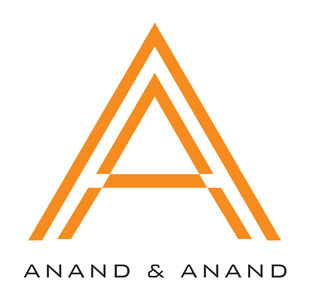The development of generative artificial intelligence (AI) has made it possible to produce unique works of art, music, literature and design. Thanks to sophisticated machine learning algorithms, this technology can produce original and unique results.
However, the emergence of generative AI has brought up important concerns regarding IP rights such as those pertaining to ownership, attribution and infringement. To strike a balance between promoting innovation and defending the rights of artists, understanding the complicated environment of generative AI as well as its consequences for IP rights is necessary.
Generative AI is the application of algorithms and models enabling machines to produce material autonomously. These algorithms may occasionally emulate humans since they are trained on enormous datasets. Recurrent neural networks and generative adversarial networks are frequently used to produce complex and varied content.
Ownership issue

Partner
Anand and Anand
The topic of ownership is one of the key queries surrounding generative AI. In most jurisdictions, including India, the author of an original work is given ownership under copyright laws. However, the distinctions are blurred when it comes to generative AI. Traditional ideas of authorship and ownership are questioned because the content is created autonomously by AI algorithms. Legislators and courts are struggling to come up with legal frameworks that take into account the special features of generative AI. The US Copyright Office has stated that any work created by non-human entities, which also includes machines, is not eligible for copyright protection.
Another example is the case of computer scientist Stephen Thaler, who has been on an expedition to acquire patents for inventions created by his AI system, Device for the Autonomous Bootstrapping of Unified Sentience (DABUS), filing patent applications in various jurisdictions including the US, UK, Australia and New Zealand. But courts in these jurisdictions have upheld the idea that to be eligible for patent protection, their laws require inventors to be human beings.
Attribution rights
Attribution is another IP issue that generative AI brings up. It’s critical to appropriately recognise content creators when AI systems produce it. Aside from acknowledging the efforts of human developers, ensuring accurate attribution promotes responsibility and openness throughout the creative process. Additionally, when generative AI is involved, rights management becomes complicated. AI-generated content licensing and distribution need to be carefully considered. It might be necessary to modify conventional licensing models to take AI into consideration.
Infringement & plagiarism

Associate
Anand and Anand
Generative AI also introduces challenges related to infringement and plagiarism. As AI systems can mimic existing content styles and create new variations, distinguishing between original work and AI-generated replicas can be difficult. This opens the door to potential copyright infringement and plagiarism concerns.
Recent examples in India include viral videos of Bollywood songs in the voice of Canadian artist Drake, and Punjabi songs in the voice of the deceased artist, Sidhu Moosewala, created with the help of generative AI tools, both of which have been condemned by the respective parties.
To address this, it is essential to develop technological solutions that can track and verify the authenticity and originality of AI-generated content. Watermarking, digital signatures and blockchain-based systems are some potential approaches that can help protect the rights of creators and prevent unauthorised use.
Legislation role
Regulatory and policy frameworks governing IP must adapt as generative AI develops. To establish clear rules and legislation, legislators and policymakers must actively interact with the complexity of AI-generated material. To achieve a balance between fostering innovation and defending IP rights, co-operation between technologists, legal professionals and creative communities is essential. Strong and progressive regulation can contribute to the growth of a generative AI ecosystem, while safeguarding the rights of creators.
For example, the draft Artificial Intelligence Act proposed by the European Parliament aims to regulate safer and more transparent implementation of AI, placing obligations on generative AI systems to comply with transparency requirements and ensure safeguards against generating illegal content, among other things.
Madhu Rewari is a partner and Ansh Maggo is an associate at Anand and Anand

Anand and Anand
B-41, Nizamuddin East,
New Delhi 110013, India
Contact details:
Tel: +91 120 405 9300
Email: madhu@anandandanand.com



























